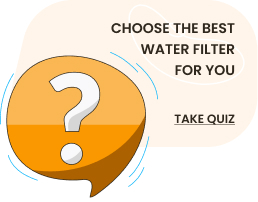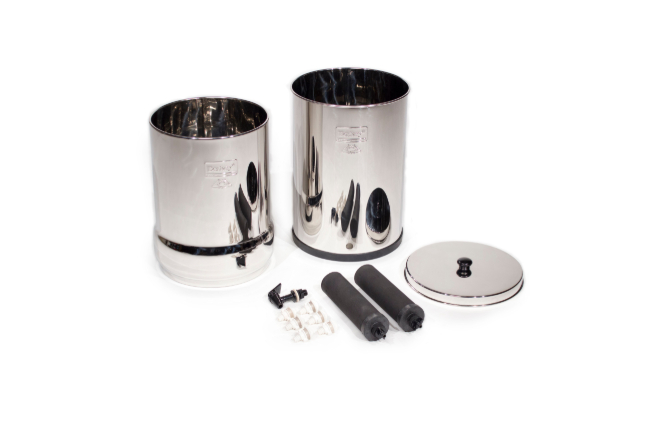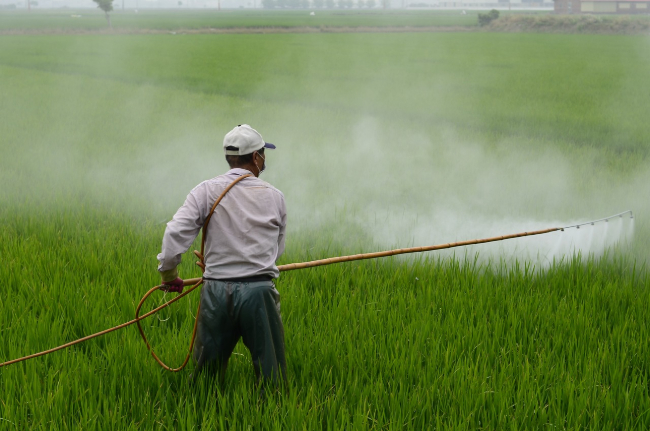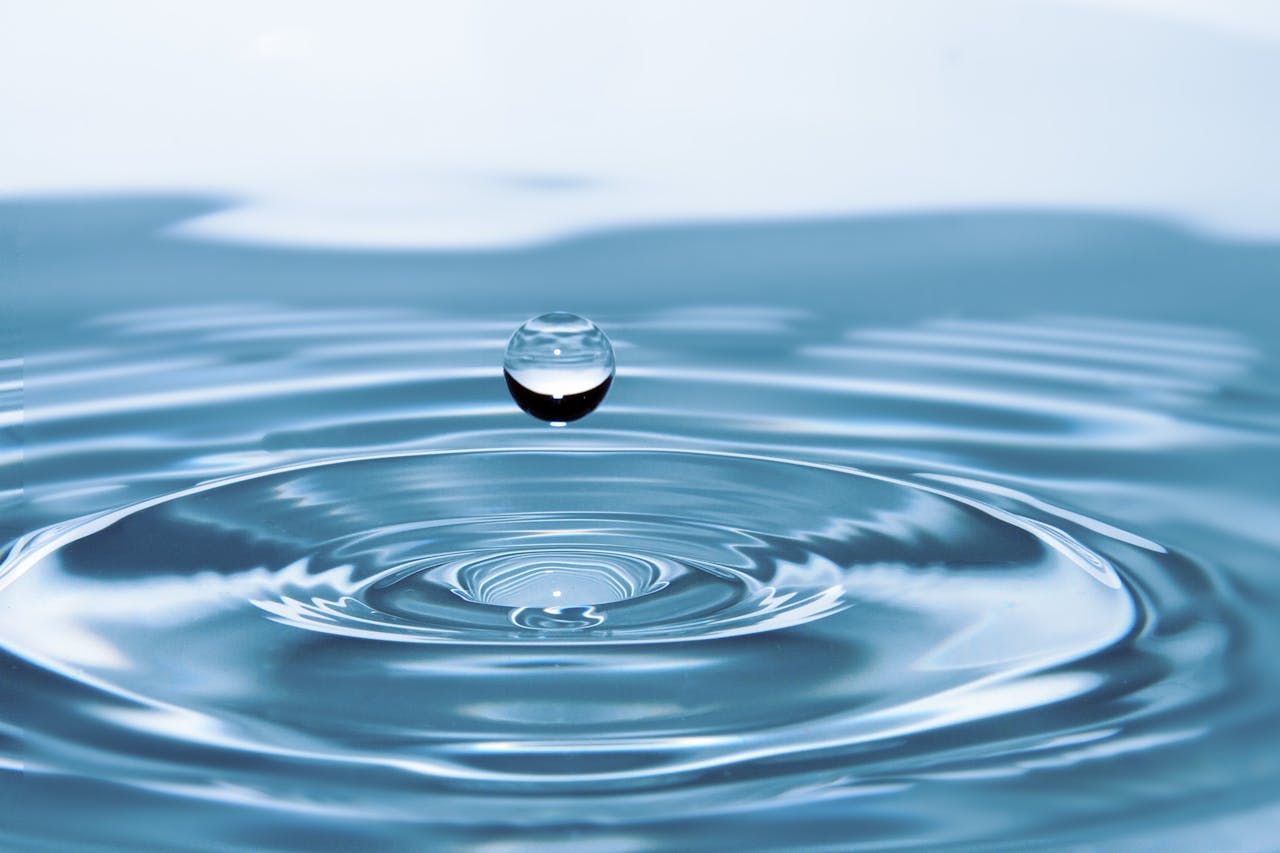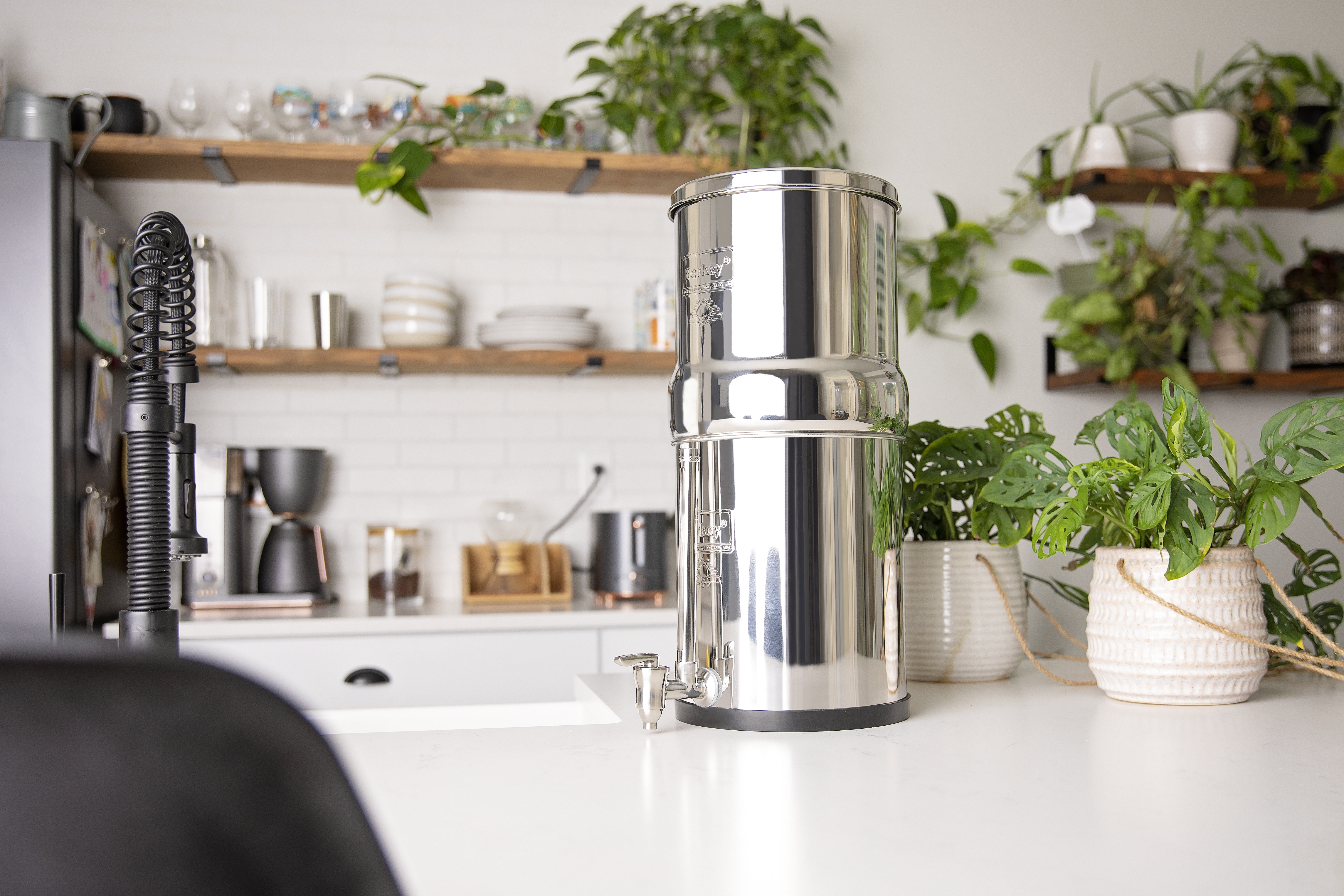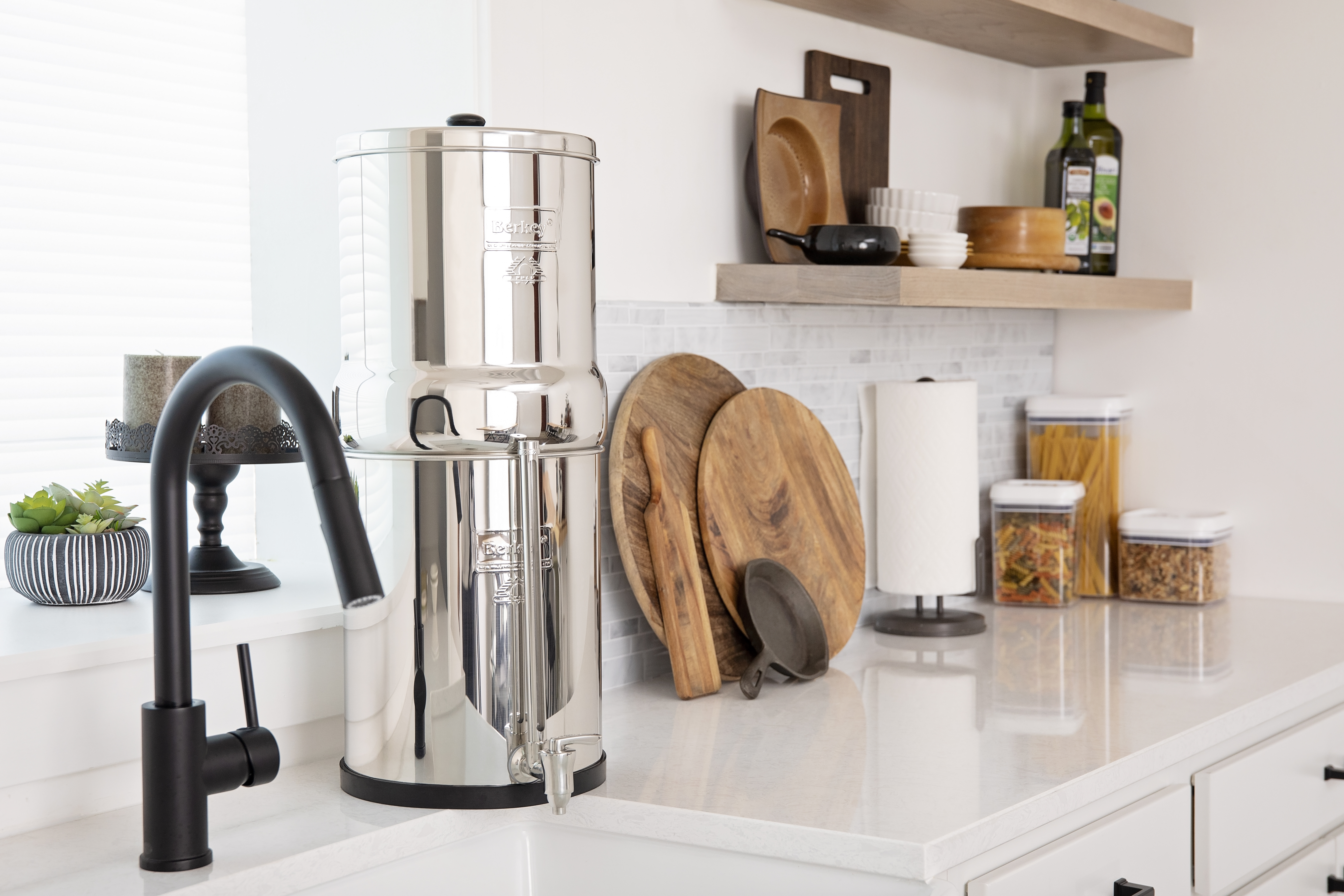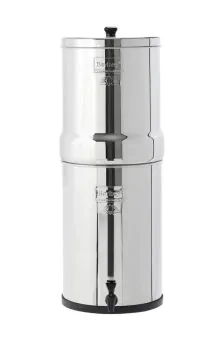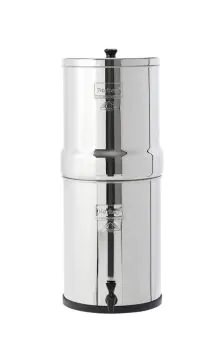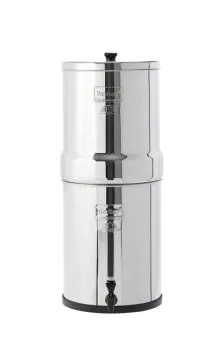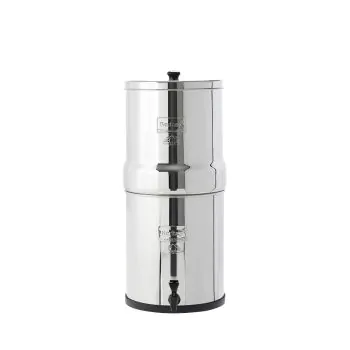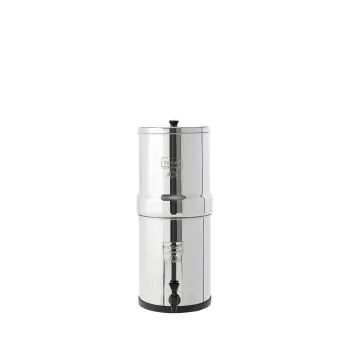Tap water in most developed countries is subject to stringent regulations and regular testing to ensure it meets safety standards for drinking water, but is tap water safe to drink? The quality can vary based on the local infrastructure and contamination risks.
Potential contaminants include lead, nitrates, bacteria, fluoride, and chemicals like chlorine byproducts. In areas with older plumbing, lead contamination is a particular concern, especially for infants, young children, and pregnant women.
From this article, you'll learn:
- Is it Safe to Drink Tap Water During Pregnancy?
- Is it Safe to Use Tap Water for Baby Formula?
- Is it Safe for Newborn and Young Children to Drink Tap Water?
- Precautions and Alternatives: How to Make Sure the Water Is Safe?
Is it Safe to Drink Tap Water During Pregnancy?
We already answered the general question about is tap water safe to drink in another article. Now, let's zoom in, and focus on the mothers-to-be. Is the quality of the water they're drinking important for their future children? Of course. Here's what you should know:
Tap water can be safe to drink during pregnancy if it meets local and national safety standards. However, due to the increased vulnerability of pregnant women and their developing babies, it is crucial to ensure the water is free from harmful contaminants such as lead, nitrates, fluoride, microbial pathogens, and toxic chemicals.
Studies have shown that exposure to fluoride in the mother’s womb can result in reduced intelligence in children, while a mother’s exposure to pesticide chemicals can make their baby vulnerable to tuberculosis. It is advisable to always consult healthcare providers for personalized advice and guidance regarding water safety during pregnancy.
Now let's tackle the next logical question: what about the children's themselves and the water they're drinking?
Is it Safe to Use Tap Water for Baby Formula?
Using tap water for baby formula is not recommended. Exposure to high levels of nitrates, often found in agricultural runoff, can cause methemoglobinemia or "blue baby syndrome," a condition that reduces the blood’s ability to carry oxygen, which is especially dangerous for infants and in severe cases can be fatal.
As newborns and young children have underdeveloped immune systems, they are more susceptible to infections and illnesses caused by bacteria, viruses, and other pathogens that might be present in tap water. Even small amounts of pathogens that would not harm adults can cause severe illnesses in infants.
Infants are particularly vulnerable to gastrointestinal infections caused by bacteria, viruses, and protozoa that may occasionally be present in tap water, especially if there are issues with the local water supply or if the water system has been compromised, for example, due to pipe breaks.
Is it Safe for Newborn and Young Children to Drink Tap Water?
Tap water is not considered safe for newborns and young children due to several potential risks associated with contaminants and the specific vulnerabilities of infants.
Infants are particularly sensitive to harmful toxins such as lead and chlorine byproducts, for example. Exposure to lead, which can leach from old pipes and plumbing fixtures, is particularly dangerous for infants and young children as it can lead to developmental delays, cognitive impairments, and other serious health issues.
Chlorine byproducts, pesticides, and other chemicals that are often present in tap water can have more pronounced effects on young children due to their smaller body sizes and higher rates of water consumption relative to body weight.
Utilities very often add fluoride to tap water to help prevent tooth decay. However excessive fluoride intake during the early years of life can cause dental fluorosis, which results in discoloration and damage to the developing teeth of children. Studies have shown that exposure to PFAS chemicals in drinking water also increases the risk of cavities in children.
It is always advisable to consult a pediatrician regarding the best water for infants, especially if there are concerns about the quality of local tap water.
Precautions and Alternatives: How to Make Sure the Water Is Safe?
While tap water is readily accessible and convenient, it may not be safe for your child or you to consume. So what precautions can you take to keep your family safe? Boiling water, using bottled water, and filtering water are three alternatives, but they are not all equal in terms of their safety.
Boil Water
For extra precaution, especially for babies under six months, it's often recommended to use water that has been boiled for at least one minute and then cooled for mixing formula or for drinking if tap water quality is uncertain. But does boiling water purify it sufficiently? While boiling kills bacteria and other pathogens, it does not remove harmful chemical contaminants like lead or nitrates. Boiling water can make these contaminants even more concentrated.
Use Bottled Water
Parents often opt to use bottled water labeled as safe for infants as an alternative, but is this a safe alternative? It’s important to note that not all bottled water is appropriate for infants, as some may still require boiling or may harbor harmful contaminants such as fluoride, microplastics, and Bisphenol-A (BPA) — a chemical found in plastics that is a known hormone disruptor and is also potentially carcinogenic.
Filter Water
The safest option is to use filtered water produced by a high-quality water filter that's capable of removing specific contaminants of concern.
Look for filters such as the Berkey water filtration systems that can remove lead, nitrates, and other potential contaminants such as bacteria, viruses, and fluoride that may be problematic in your tap water.
Drinking filtered water offers many benefits over boiling water or purchasing bottled water:
- a good quality filter can remove a much wider range of contaminants than simply boiling water, reducing your exposure to harmful pollutants that can compromise your health
- it’s far cheaper and more eco-friendly than purchasing bottled water over the long term, it’s more sustainable for both your wallet and the environment
And it's just a tip of an iceberg: here you can learn about more benefits of drinking filtered water.
Conclusion:
While tap water in many areas is treated and regulated to be safe for general consumption, the specific vulnerabilities of the developing fetus, newborns, and young children make it necessary to take additional precautions.
Boiling water or opting for bottled water may seem like safer alternatives to tap water, but they can still contain contaminants that can negatively affect your baby's health. By using a high-quality water filter, such as a Berkey water filtration system that can remove over 200 common contaminants found in drinking water, parents can ensure that the water their infants consume is safe and free from harmful pollutants.
Berkey Water Filters
Most Common Questions About the Safety of Tap Water for Children
Is it safe to drink tap water during pregnancy?
Tap water is safe to drink during pregnancy if it meets local and national safety standards. Nevertheless, it's important to make sure that it is free from harmful contaminants.
Can I use the tap water for baby formula?
Tap water definitely isn't the safest choice for preparing a baby's formula. The newborns underdeveloped immune systems are susceptible to bacteria, viruses, and other pathogens that might be present in tap water.
Is it safe for newborns and young children to drink tap water?
Tap water isn't considered safe for newborns and young children. It is due to several potential risks associated with contaminants and the specific vulnerabilities of infants. It is always advisable to consult a pediatrician regarding the best water for them.
What water should infants and young children drink instead of tap water?
The most common alternatives for tap water for children's are boiled water, bottled water and – which we consider the safest and best option – filtered water.
